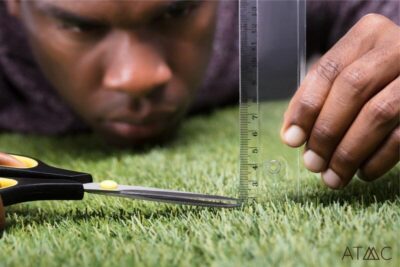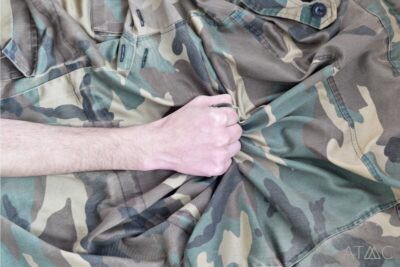Last Updated on October 24, 2025 by
Alternative to Meds Editorial Team
Medically Reviewed by Dr John Motl MD
Table of Contents:
Holistic treatment for anxiety disorders must be carefully managed as there are many root causes for anxiety. Medical, metabolic, and neurotoxicity issues are common, especially with ongoing anxiety disorders. For many, life traumas still haunt their everyday existence and are left unresolved. Here, at our licensed mental health facility, we can help find emotional resolve in a delicate and understanding way, guided by our experts.
Acute Stress Disorder
 Acutes stress disorder is often misdiagnosed. The diagnosis doesn’t only mean stress. According to the DSM, the stress here relates to a past trauma, or past trauma exposure. A person experiencing days or months of being stressed out doesn’t necessarily meet the 9 or more symptoms required for a valid diagnosis of ACD. In the rush of a crisis, doctors are often unprepared to take the time for a thorough and searching medical exam and other diagnostic tools. And the following is a common example of that.
Acutes stress disorder is often misdiagnosed. The diagnosis doesn’t only mean stress. According to the DSM, the stress here relates to a past trauma, or past trauma exposure. A person experiencing days or months of being stressed out doesn’t necessarily meet the 9 or more symptoms required for a valid diagnosis of ACD. In the rush of a crisis, doctors are often unprepared to take the time for a thorough and searching medical exam and other diagnostic tools. And the following is a common example of that.
Tammy was a 52-year-old schoolteacher in the Seattle area. Her 24 year old daughter Jill was getting married in 6 weeks to a successful business owner and the couple were observably happy and in love. Though on the surface everything looked fine, inside Tammy felt increasingly anxious about the upcoming wedding preparations. As the wedding day approached, Tammy became more and more anxious about the myriad of details, worrying about issues that she felt she had little to no control over. Her sleep was erratic, her diet became neglected, opting for fast food or sugary snacks eaten in a rush. A friend told her to go see her doctor and get some help. She did just that, and due to her acute stress levels, the doctor diagnosed Tammy to be suffering from “acute stress disorder,” and prescribed only one of the treatments advised in the DSM, which was a benzodiazepine to help calm her nerves. Diet correction, improved sleep hygiene, exercise, mindfulness and other psychotherapy tools as listed in the DSM were all ignored in her doctor’s treatment suggestions. And more importantly, the physician’s initial diagnosis was incorrect.
Acute stress disorder is prone to misdiagnosis.
The acute stress symptoms did abate for about a week. However, when Tammy was into the second week of her prescription, she found she couldn’t sleep for several days in a row. In an exhausted state, she continued to ruminate about the upcoming wedding, began drinking alcohol to “ease her nerves”, and eventually had a complete meltdown and ended up in a psychiatric hospital. Doctors told her she’d had a toxic reaction to the drugs, and one specialist felt her prior symptoms were actually related to early onset menopause. That was over 2 years ago, and not only did Tammy not get to see her daughter’s wedding, she no longer can teach, and is now taking 6 prescription drugs to medicate the various symptoms which drove her life to ruins.
Are there better choices besides numbing medications to relieve acute stress disorder symptoms?
When life is lived, one can expect stress levels to rise. Especially when encountering acutely stressful events, such as marriages, funerals, job losses, where the effects of these events may be further underscored by health conditions. This would be like adding fuel to the fire.
If life has become acutely stressful, perhaps a full battery of tests and non invasive, non harmful treatment options as listed in the DSM would be a more prudent option to consider as a first step. We also offer tapering programs for benzodiazepine withdrawal and recovery. Call us today to find out more about alternative treatments for acute stress, with or without a diagnosis of acute stress disorder.
 Agoraphobia is a condition of being fearful for no apparent or rational reason, of places like shopping centers, public transportation, outdoor spaces, gathering places, workplaces, open fields, and so on. Statistically, Agoraphobia is estimated to affect from 5 million to 20 million Americans.
Agoraphobia is a condition of being fearful for no apparent or rational reason, of places like shopping centers, public transportation, outdoor spaces, gathering places, workplaces, open fields, and so on. Statistically, Agoraphobia is estimated to affect from 5 million to 20 million Americans. Who doesn’t have an obsessive compulsion or two:
Who doesn’t have an obsessive compulsion or two: It is a very sad fact indeed that post-traumatic stress disorder ( PTSD ) is fast becoming one of the most frequently diagnosed conditions not only in the US, but in the world. Perhaps in part because we live in an environment of ongoing war and militarism, unpredictable societal trouble, stress and strife in many areas of modern life on planet earth. But notably, the DSM has increased by 50% the various trigger labels for the condition. While it’s true that life can be stressful, and unfortunately, people are subjected to various traumas that are hard to recover from, these facts don’t always support a valid diagnosis that can lead to multiple prescription drugs.
It is a very sad fact indeed that post-traumatic stress disorder ( PTSD ) is fast becoming one of the most frequently diagnosed conditions not only in the US, but in the world. Perhaps in part because we live in an environment of ongoing war and militarism, unpredictable societal trouble, stress and strife in many areas of modern life on planet earth. But notably, the DSM has increased by 50% the various trigger labels for the condition. While it’s true that life can be stressful, and unfortunately, people are subjected to various traumas that are hard to recover from, these facts don’t always support a valid diagnosis that can lead to multiple prescription drugs.  There can be a turning point when one becomes fed up with social anxiety, this troublesome condition which can keep one from doing the things one really loves, or can even turn one into a bit of a recluse.
There can be a turning point when one becomes fed up with social anxiety, this troublesome condition which can keep one from doing the things one really loves, or can even turn one into a bit of a recluse.







